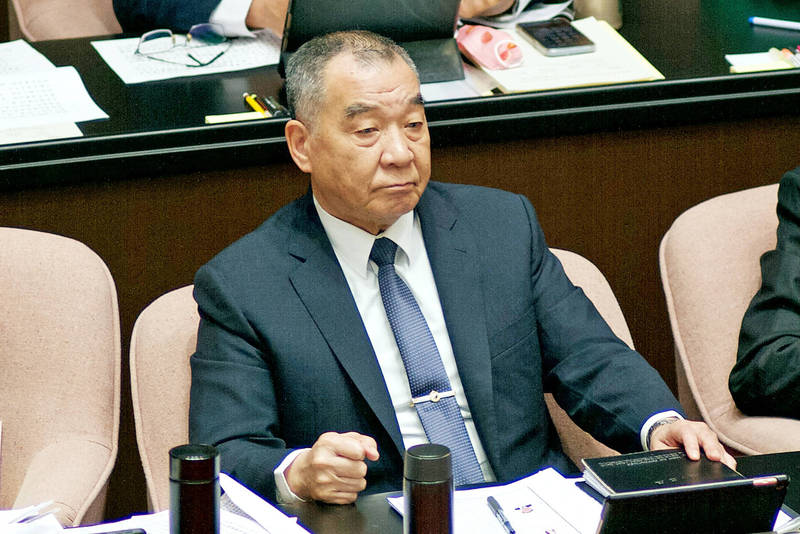《TAIPEI TIMES》 Training in US to boost ties: minister

Minister of National Defense Chiu Kuo-cheng attends a question-and-answer session at the legislature in Taipei yesterday. Photo: Sam Yeh, AFP
By Chen Cheng-yu and Jonathan Chin / Staff reporter, with staff writer and CNA
The government’s plan to send a combined arms battalion to train in the US is an upgrade to existing bilateral arrangements, Minister of National Defense Chiu Kuo-cheng (邱國正) told lawmakers yesterday.
Chiu made the remark at an question-and-answer session at the legislature in Taipei when Democratic Progressive Party (DPP) Legislator Wang Ting-yu (王定宇) asked him about Chinese-language media reports on the plan.
The two countries’ forces routinely train together, but the scope of joint drills was previously limited to combat skills training at the squad, platoon and company level, Chiu said.
Sending a battalion to the US marks an improvement, as it would enable it to boost its tactical abilities, he said.
Trainings involving battalions — the army’s basic tactical unit — would also ensure that the two countries are familiar with each other’s operational style, work methods and military doctrines, he said.
A joint battalion composed mainly of soldiers from the army’s 333rd Mechanized Infantry Brigade and 542nd Armor Brigade is expected to head to the US in the second half of this year, a source with knowledge of the matter said.
It would be the first time a battalion, typically consisting of about 500 soldiers, travels to the US, the source said, comparing it with platoon-level joint drills involving 25 to 60 troops and company-level exercises involving 80 to 100 soldiers that were conducted before.
First established in September 2019, joint battalions involve liaison officers from units such as infantry, armored forces, the navy, the air force and army aviation, as well as specialists and soldiers trained to operate independently on the battlefield.
Association of Strategic Foresight research fellow Chieh Chung (揭仲) said the scope of exercises conducted in densely populated Taiwan is limited.
Joint drills in the US would enable Taiwanese soldiers to learn from US troops’ combat experience across a range of environments, Chieh said.
It would enable the military to update its tactics, combat skills and training methods, Chieh added.
If joint drills were to be held regularly and on a long-term basis, involving US units of the same level, it would considerably enhance the interoperability of ground force tactical units from the two countries and increase the opportunity for joint operations, Chieh said.
However, such drills would be expensive, and Taiwan should negotiate with the US about covering the costs through a grant or loan under the US Foreign Military Financing program, Chieh said.
Su Tzu-yun (蘇紫雲), a research fellow at the government-funded Institute for National Defense and Security Research, said the joint drills would give the Taiwanese military access to the US’ more diverse training grounds, enabling them to bolster coordination between infantry and artillery forces, which is constrained by the terrain in which the troops usually train.
Asked whether enhanced military cooperation means the US is gradually adopting a stance of strategic clarity toward Taiwan, Lu Yeh-chung (盧業中), an assistant professor in National Chengchi University’s Department of Diplomacy, said the US policy of strategic ambiguity has not changed, referring to statements by officials of the administration of US President Joe Biden.
However, “there are fewer and fewer areas of ambiguity,” Lu said.
Strategic clarity would require that the US clearly state that it would react if China were to attack Taiwan and how it would react, Lu added.
Due to Taiwan’s special international situation and the potential impact leaks of joint military training and exchange programs with the US could have, the government never confirms reports of such programs.
新聞來源:TAIPEI TIMES















